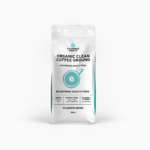Australian children with hyperactivity disorders shouldn’t be medicated unless their symptoms are “pervasive” and affect all aspects of life, doctors and parents have been told.
And drugs should never be a first-line treatment for attention deficit hyperactivity disorder (ADHD) in pre-school aged children.
More than 350,000 Australian children and adolescents are estimated to suffer from ADHD.
Draft treatment guidelines were released on Monday by the Royal Australasian College of Physicians (RACP) and the National Health and Medical Research Council.
They recommend a “multimodal” approach to treatment.
“For a child with ADHD this may well involve some parental education, some behaviour modification therapy, some educational support and it could include medication,” the chair of RACP’s guidelines working group, David Forbes, told AAP.
He says the new guidelines will result in fewer children on drugs.
The previous guidelines stated “medication should be considered for all children with ADHD”.
“But we quite clearly say medication will not be required for all children with ADHD and all children do need a multimodal approach,” Prof Forbes said.
The guidelines state:
* not all people with ADHD require pharmacological management,
* non-pharmacological approaches should be considered first,
* medications should only be used when symptoms are pervasive across settings (school and home) and cause significant impairment, and
* medication should not be used as first-line treatment for ADHD in preschool-aged children.
Last month, it was reported 30 children had wanted to kill themselves while on drugs for the disorder.
The number of serious reactions to medicines such as Ritalin have doubled in a three-year period, according to Therapeutic Goods Administration figures published by News Ltd.
The former coalition government asked the college of physicians to review the clinical guidelines for ADHD in its last year in office.
The results were presented to the NHMRC earlier this year but the issuing of a final draft has been delayed due to a United States investigation into a leading ADHD researcher.
It’s alleged he had a conflict of interest and the Australian guidelines rely on that researcher’s work.
Prof Forbes says the draft guidelines will have to do for now.
“They’ve been prepared by experts who did the best job they could,” he said.
“There’s been a hiccup that’s emerged but we think that practitioners and children in Australia should have the benefit of these while we’re awaiting clarification (from the US).”
Federal Health Minister Nicola Roxon says she’s “pleased we can finally provide this more up to date information on ways to identify and care for those in our community who may be suffering from ADHD”.
Source: Julian Drape, AAP in SMH.com.au, November 30, http://news.smh.com.au/breaking-news-national/drugs-not-best-option-for-adhd-report-20091201-k1ex.html





0 Comments